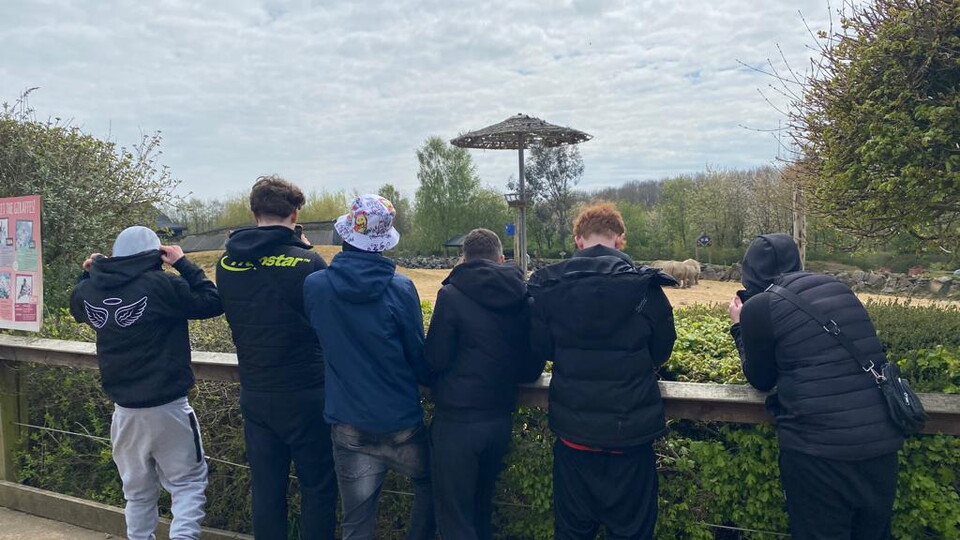On BBC last night, Roman Kemp: The Fight for Young Lives aired which follows on from his first documentary, Our Silent Emergency which explored the mental health and suicide crisis affecting young men, following the passing of Roman’s friend in 2020.
The Fight for Young Minds delves deeper, as he strives to move the conversation from encouraging young people to talk about their mental health, to making sure they are properly supported when they speak out.
Poppy's heart-breaking story sets the stage for the programme. Her early attempts at suicide and subsequent low mood diagnosis, followed by two years of inconsistent treatment, ultimately resulted in a tragic end to her life at the age of 16. This narrative shows the consequences of inadequate mental health care for young people, with Roman advocating for change.
One recurring issue throughout the programme is the difficulty of obtaining timely help for young people. Despite CAMHS and GP’s being often responsive, the programme highlights in-between times when young individuals like Poppy felt unsupported and lacked hope. This gap in care raises concerns, especially as many CAMHS services appear stretched and unable to provide the correct support until individuals reach a crisis point.
The increase in referrals to CAMHS by young people in the UK, which has gone up 75% since 2019, underlines the growing demand for mental health services. However, it also suggests that the system might be inadequately equipped to meet this rise in need.
The programme also sheds light on the need for community-driven solutions such as the ‘midnight club’ which provides a safe place for young people to talk, set up by a group of friends who lost their friend to suicide. This initiative shared the importance of community support and could help remove some demand on front line workers to provide all the necessary support.
The programme further highlights the stories of Jayden and Isabella, who have both struggled to access adequate support for their mental health issues. Their experiences highlight the importance of addressing the issues in the system, from in Jayden’s case, reluctant GP’s to lengthy waiting times. Jayden is part of a Young Minds action group who are using their own experience to drive positive change and the programme saw them visit Parliament to call for shorter waiting times and a counsellor in every school.
The programme visited The Grace Academy Coventry and initiatives like the Circle in Ealing who provide hope, showcasing the positive impact of on-site support and dedicated spaces for students to discuss their mental health concerns. Both initiates offer valuable insights into the potential benefits of integrating mental health care into educational environments, a focus which Roman is calling for.
As a result of his further exploration and personal conversations during the programme, Roman's writes an open letter to the government advocating for 100% of schools to have mental health support teams, for more comprehensive and accessible care which Northampton Saints Foundation support - The current Government target is just 35%.
The government's response shared at the end of the programme, by Minister for Mental Health Maria Caulfield, appears promising however might fall short of the needs identified in the programme.
Maria said “The Government is investing an additional 2.3 billion a year into mental health by 2024, giving an additional 345,000 children and young people access to support. We are rolling out mental health support teams to schools and colleges across the country and more than one third of all pupils and students now have access to these teams a year earlier than planned. We’re committed to extending coverage to at least 50% of pupils in England by the end of March 2025 but our ambition is to go further, and we will continue to evaluate the impact of these teams and consider how more pupils can access support”.
At Northampton Saints Foundation, we understand while Government efforts are a step in the right direction, we agree there is a need for continued advocacy and change to ensure all young people receive the care they deserve.
At present, we educate more than 6,000 children in mainstream schools and alternative settings to support the physical, social and emotional development aiming to reduce the risk of exclusion or disengagement from education.
We work with CAMHS, schools and the local authority who refer young people to our Engage programme, with hubs across Northampton, Milton Keynes, Corby and Ipswich. These young people have disengaged from education and in need of additional support, many experiencing low mental health and currently on waiting lists to receive support.
We also provide young people aged 16+ who may not have achieved the required grades at GCSE, cannot manage with a change of education setting at 16+, or meet the minimum expectations for further education, with the key skills and qualifications they need to create a positive pathway, equipping them with work experience and life experience to help improve their personal characteristics, confidence, self esteem and resilience, and boost their potential employability.
In 2022, we received funding from the National Lottery reaching Communities for a Youth Therapist who is supporting students across the Foundation’s Education and Social Inclusion programmes creating a further intervention for young people to understand their emotions, develop coping methods and build emotional resilience for the present day and future.
We remain focussed on our ambition to give every person the chance for a positive future, continue as a safe place where young people can learn, develop new skills, increase confidence and where appropriate return to education, training or employment. Continue to work with our partners to help reduce and relieve pressure from waiting lists and expand to meet the needs of young people, evaluating our impact and offering new services.
For more information on our programmes or ways to support, please email admin@northamptonsaintsfoundation.org
